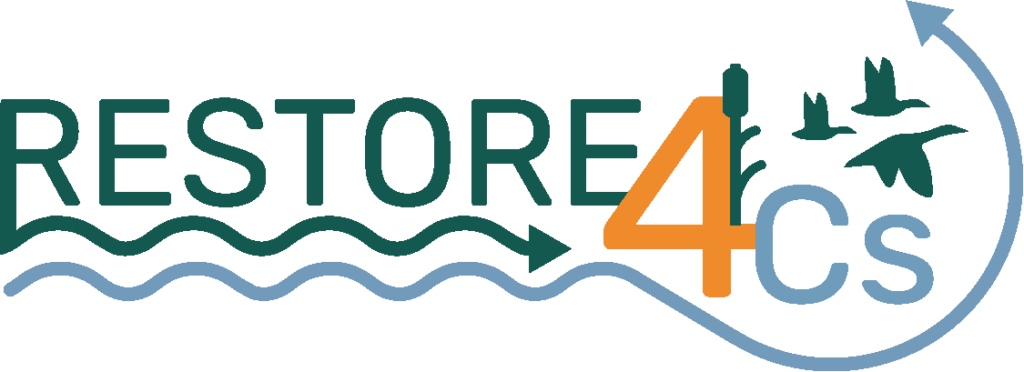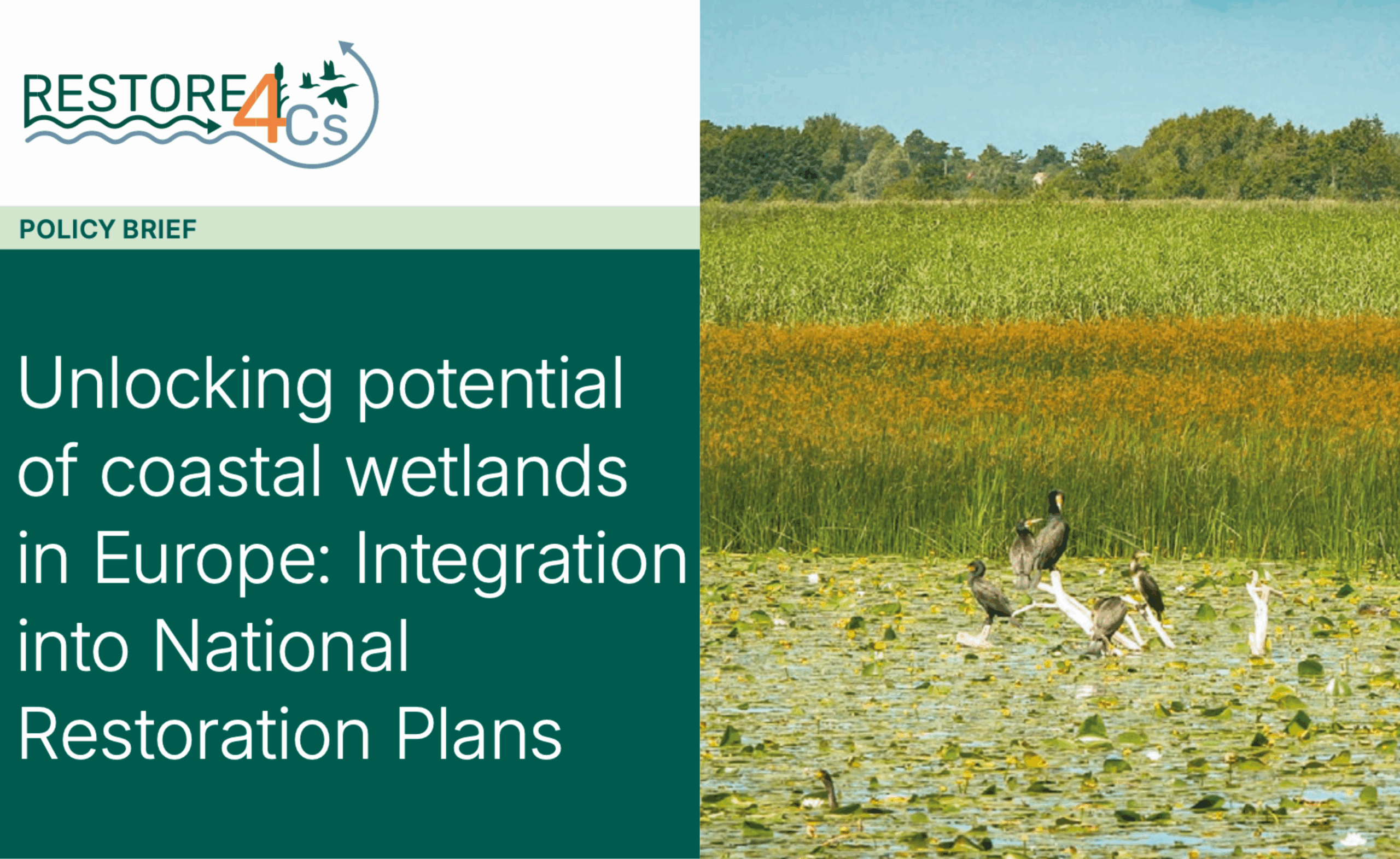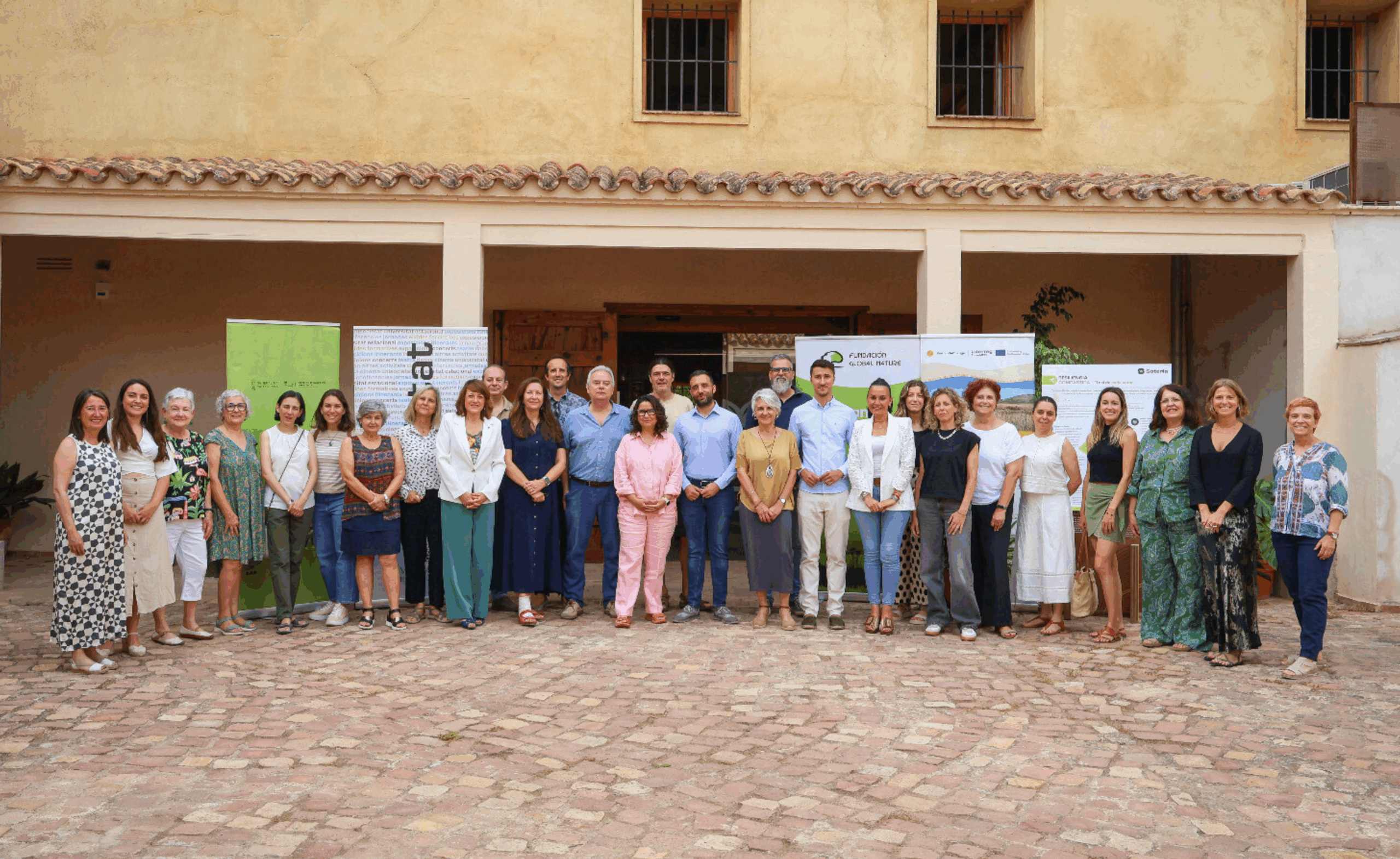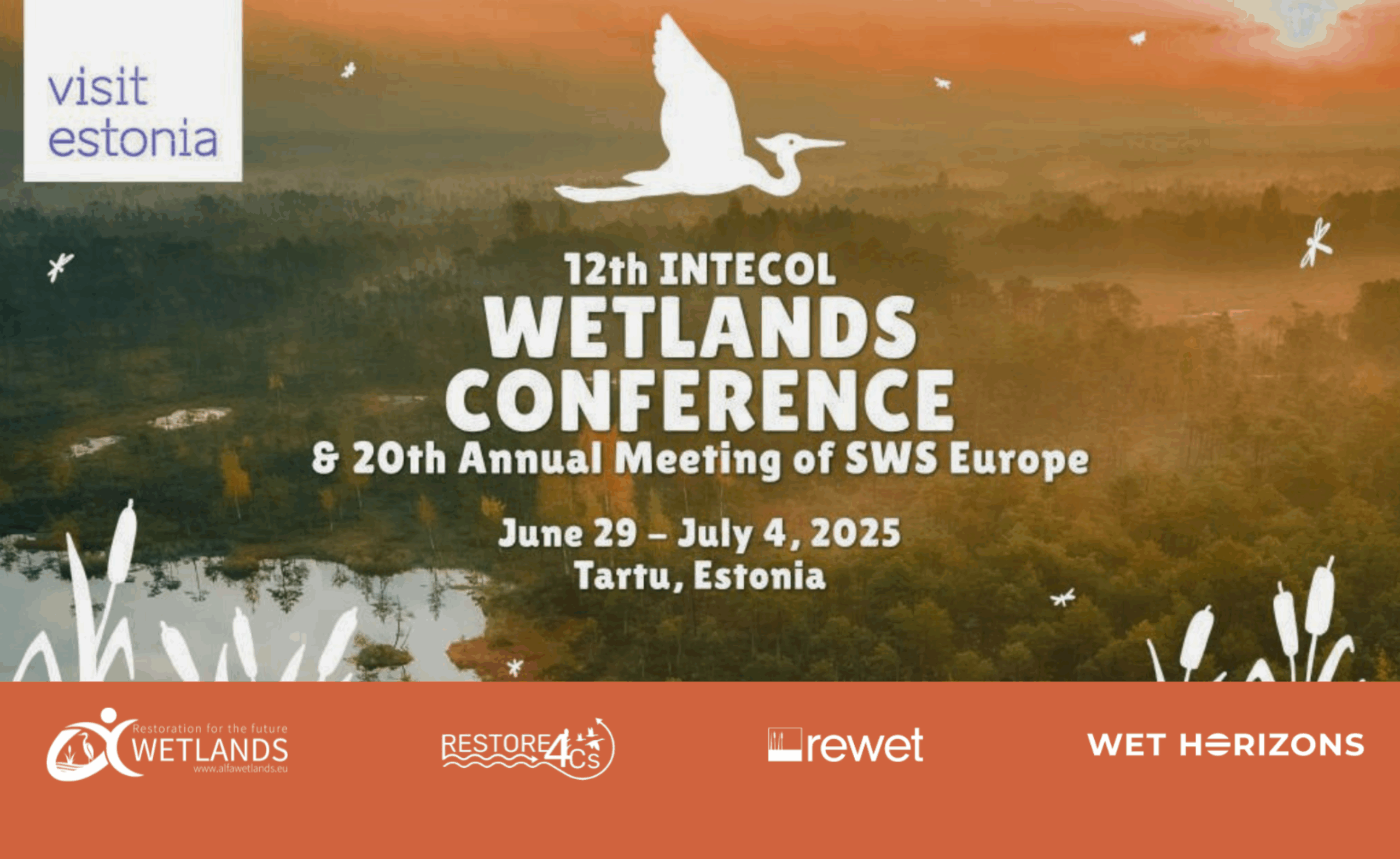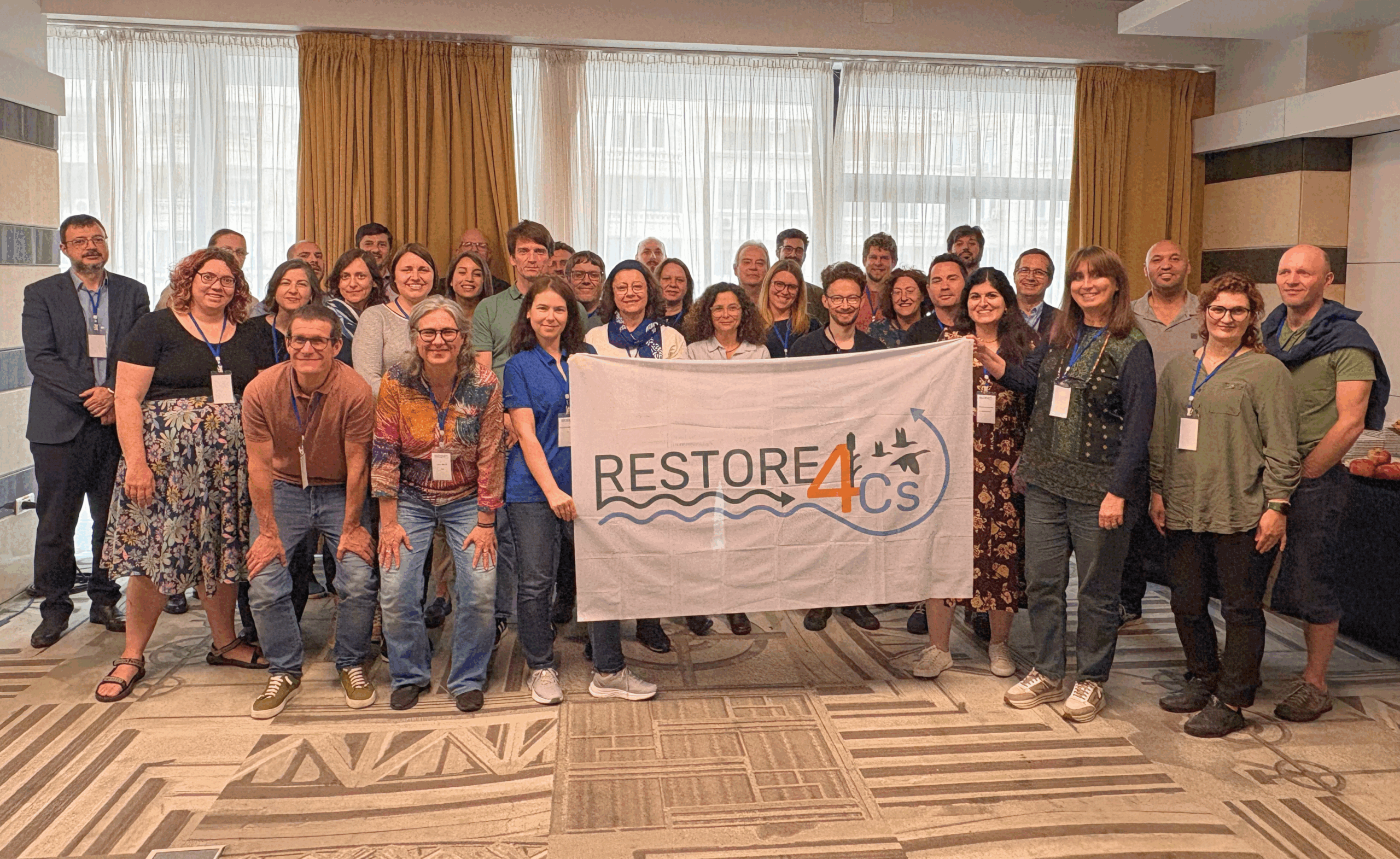On February 19, the RESTORE4Cs project hosted the workshop “Tools and Indicators for Coastal Wetlands Restoration to Promote Climate Resilience in Europe.” This engaging online event attracted up to 70 participants from public authorities, European organisations including the European Environment Agency and the European Commission, academia, private sector, and civil society. The event featured presentations and exchanges on wetland-related EU policy targets, policy outcome indicators to track progress in coastal wetland restoration and protection, and the role of decision-support tools and sustainable financing in advancing coastal wetland restoration. To access the workshop presentations, please visit the event webpage.
EU policy context for wetlands protection and restoration
Nature and biodiversity policies currently serve as the primary EU regulatory framework supporting wetland protection and restoration, complemented by policy targets from regional sea conventions and policies aiming at climate neutrality. Recognising this, participants called for better alignment between climate policies and the newly adopted EU Nature Restoration Regulation.
Overall, participants recognised the key role which the EU Nature Restoration Regulation can play to significantly boost wetland restoration action. At the same time, the workshop made clear that there are challenges ahead for planning wetland restoration in the National Restoration Plans. These include funding and planning processes, prioritisation of areas to restore, stakeholders and landowners’ engagement, political will, incomplete data and lack of policy coherence.
The need for a more consistent definition of coastal wetlands in the EU policy framework was among the key issues highlighted, to eliminate discrepancies in policy interpretation and implementation across Member States. The importance of harmonising the definition of wetland ecosystems in EU policies with the Ramsar Convention on Wetlands and other global frameworks was emphasised.
Enhancing wetlands assessment and monitoring
The workshop underscored the importance of strengthening data and assessments for monitoring and reporting progress toward wetland-related targets. Several limitations were highlighted in the existing monitoring and reporting processes under the Habitats Directive, particularly regarding data quality and availability. Additionally, with the EU Nature Restoration Regulation introducing new binding targets for wetlands, including coastal habitats, there is a need to develop comprehensive indicators to measure progress.
Findings from Horizon Europe projects were highlighted as potential valuable contributions in this area. Participants were informed of the indicators being developed in the RESTORE4Cs project and designed to assess the status, trends, and policy targets related to coastal wetlands in response to EU policies. Presenters stressed the importance of balancing the need for robust indicators providing clear evidence of the contribution of coastal wetland restoration efforts to various policy objectives without creating more administrative complexity. The role of in-situ data and of advanced technological solutions, such as remote sensing, to improve data accuracy and support more reliable wetland assessments were discussed.
Finally, speakers and participants addressed challenges related to financing wetland restoration projects, particularly opportunities for private finance. The decisive role of public policy and public funding in fostering restoration efforts was reaffirmed. To facilitate better prioritisation, planning, and informed decision-making regarding wetland restoration actions, the RESTORE4Cs project is developing a toolbox and an online platform to serve as decision-support tools. Participants emphasised the need to maintain this platform beyond the project’s duration to ensure the long-term sustainability and usability of its results.
Future directions
Participants and speakers agreed on the importance of integrating results of the RESTORE4Cs project, such as toolbox and online platform, with products developed by other Horizon Europe projects on wetlands. To guide Member States in applying tools and methods developed by the RESTORE4Cs project, an implementation roadmap will be presented by the end of the project. These products will support the implementation of the EU Nature Restoration Regulation and other key policies framing coastal wetland restoration efforts in the EU.
